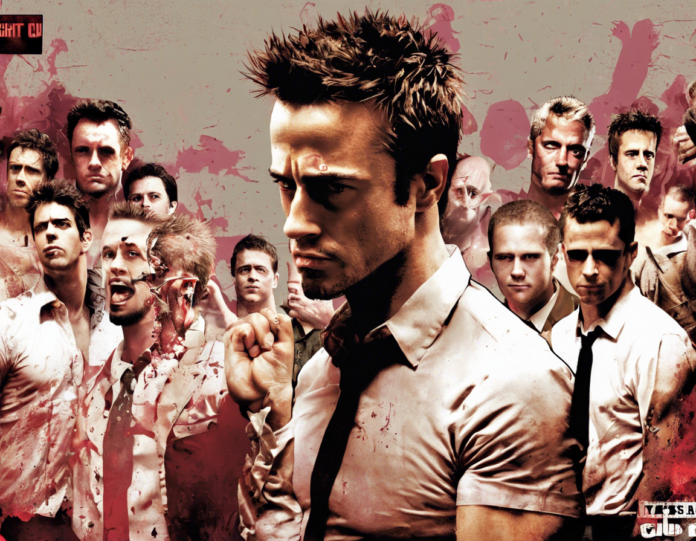In this article, we will delve into the world of Fight Club, the iconic 1999 film directed by David Fincher and based on the novel by Chuck Palahniuk. We will explore the movie’s themes, characters, memorable quotes, and its lasting impact on popular culture. So, buckle up for a deep dive into the world of Fight Club.
What is Fight Club?
Fight Club is a cult classic film that follows the journey of an unnamed protagonist, played by Edward Norton, who is disillusioned with his mundane life and forms an underground fight club with the enigmatic Tyler Durden, portrayed by Brad Pitt. The film explores themes of masculinity, consumerism, and rebellion against societal norms.
The Characters
- The Narrator: The unnamed protagonist, whose dissatisfaction with his life leads him to seek meaning through the creation of Fight Club.
- Tyler Durden: A charismatic and anarchistic figure who becomes the Narrator’s mentor and alter ego.
- Marla Singer: Played by Helena Bonham Carter, Marla is a complex character who is romantically involved with both the Narrator and Tyler.
Key Themes
Fight Club delves into several thought-provoking themes that continue to resonate with audiences:
1. Masculinity: The film challenges traditional notions of masculinity and explores how men express their identity in a modern consumerist society.
2. Consumerism: Critiques the emptiness of materialism and the pursuit of superficial happiness through possessions.
3. Identity: The characters grapple with questions of who they are, what defines them, and the masks they wear in society.
Memorable Quotes
- “The first rule of Fight Club is: You do not talk about Fight Club.”
- “It’s only after we’ve lost everything that we’re free to do anything.”
- “You are not your job, you’re not how much money you have in the bank. You are not your khakis.”
The Impact of Fight Club on Popular Culture
Fight Club has left a lasting imprint on popular culture, inspiring debates, theories, and even real-life fight clubs. Its anti-establishment message and unique storytelling have solidified its place as a cult classic.
Cult Following
Fans of the film have dissected its every frame, analyzing hidden messages, plot twists, and the unreliable narrator trope. The film’s ambiguous ending has sparked endless discussions and interpretations.
Fashion and Style
Tyler Durden’s eclectic wardrobe, characterized by red leather jackets and tinted sunglasses, has inspired fashion trends. The gritty, underground aesthetic of Fight Club has been emulated in various fashion editorials and collections.
Psychological Impact
The film’s exploration of mental health, dissociative identity disorder, and the effects of societal pressure on individuals has sparked conversations about psychology and self-discovery.
Frequently Asked Questions (FAQs)
1. Is Fight Club based on a true story?
Answer: No, Fight Club is not based on a true story. It is a work of fiction by author Chuck Palahniuk, although it does touch on real-world issues.
2. Why is Fight Club considered controversial?
Answer: The film delves into dark themes, violence, and societal critiques, which have sparked controversy and debates since its release.
3. Is Fight Club a critique of toxic masculinity?
Answer: Yes, the film critiques toxic masculinity and explores how societal expectations can lead to destructive behaviors.
4. What is the significance of the twist ending in Fight Club?
Answer: The twist ending serves to challenge the audience’s perception of reality, identity, and the reliability of the narrator.
5. How does Fight Club address themes of consumerism?
Answer: The film critiques consumerism by showing how material possessions and societal expectations can lead to a sense of emptiness and disillusionment.
6. Can Fight Club be considered a satirical film?
Answer: Yes, Fight Club employs satire to critique modern society, consumer culture, and the pursuit of superficial happiness.
7. Does Fight Club have a sequel or spin-off?
Answer: No, Fight Club does not have an official sequel or spin-off, as the original story is meant to stand alone.
8. What message does Fight Club convey about individuality?
Answer: The film emphasizes the importance of breaking free from societal norms, finding one’s true identity, and embracing individuality.
9. How did Fight Club influence other films and media?
Answer: Fight Club influenced a generation of filmmakers, inspiring them to explore unconventional narratives, dark themes, and non-linear storytelling.
10. Is Fight Club suitable for all audiences?
Answer: Due to its mature themes, violence, and strong language, Fight Club is recommended for mature audiences who can appreciate its social commentary and psychological depth.
As we wrap up this ultimate guide to Fight Club, it’s clear that the film’s impact extends far beyond its initial release. With its thought-provoking themes, complex characters, and unforgettable quotes, Fight Club continues to captivate audiences and spark discussions about identity, consumerism, and the search for meaning in a chaotic world. So, the next time you watch Fight Club, remember the first rule: You do not talk about Fight Club.

